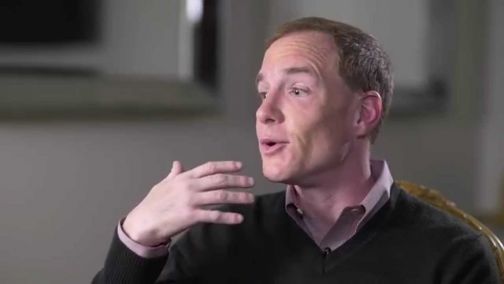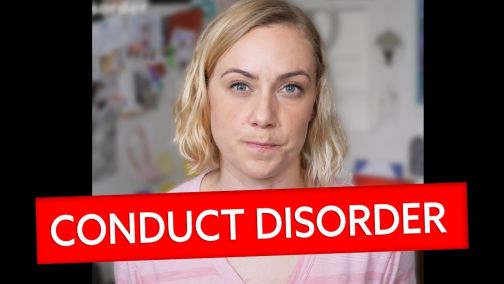Conduct Disorder
Also known as CD
What is it?
Kids are known to get violent from time to time. For example, hitting a classmate after being made fun of. These outbursts are normally isolated to moments of frustration, and are grown out of as they age. However, some children have a proclivity for violence and wrongdoing that is troublesome. This is called conduct Disorder or CD.
CD is a serious behavioral disorder that occurs in adolescence. It’s characterized by aggressive and disruptive behavior that violates social norms, and hints at a lack of disregard for others. Children with CD often have trouble following rules, and get a rise from causing harm to others. Their behavior leads to trouble at home, at school and in their personal relationships. It’s estimated that anywhere from 2-16% of children in the US have CD, and it is more common in boys than girls.
What are the symptoms?
Symptoms often emerge during late childhood or early teenage years. Like all mental conditions, CD exists on a spectrum ranging from mild to severe. Symptomatology is often broken into four categories: aggressive behavior, destructive behavior, deceitful behavior, and violation of rules.
- Aggressive behavior: Bullying others, fighting, abusing animals, hitting adults, using weapons or talking about using weapons, and being sexually coercive/aggressive.
- Destructive behavior: Intentionally destroying property by lighting it on fire, vandalizing it, smashing it, or using another destructive method.
- Deceitful behavior: Lying, stealing, breaking into homes, or being generally manipulative
- Violation of Rules: Disregarding rules at school and home, such as skipping class, running away, engaging in drug use or sexual activity at a young age, and playing pranks.
In addition to the above, children with CD often struggle to feel remorse for what they’ve done, or empathize with those who are impacted by their actions. They may have emotional outbursts when caught or reprimanded. It is common for children with CD to struggle with other mood disorders, like anxiety and depression.
What are some common warning signs?
Most teenagers will engage in disruptive behavior from time to time. They may even go through long periods of irritable mood that include an increase in lying and emotional outbursts. This is not the same as CD. Children with CD go beyond doing or saying things that are taboo, aggressive or offensive. They seem to find enjoyment in their behavior and go out of their way to cause trouble.
If you are concerned that your child, student or another adolescent you know has CD, pay attention to how they act at home, at school, with peers and among adults. Are they often aggressive and defiant? Do they frequently push back against authority and challenge the opinions of adults? Do they encourage other kids to do so? Do they lie or steal for no apparent reason? Do they enjoy having power over others? Are they known to be violent? If so, you should find time to speak with the child and discuss treatment options with their family.
What causes CD?
The exact cause of CD is unknown. Doctors believe a range of factors play a role in its development, including:
- Being genetically predisposed (i.e. other family members struggle with similar conditions like ODD, ADHD or CD)
- Experiencing a traumatic brain injury after which symptoms arise
- Being raised in a toxic home environment, or living with parents/guardians who struggle with addiction
- Being bullied or not accepted by peers
- Being abused as a child
- Lacking moral awareness and/or empathy
Disadvantaged children, such as those living in poverty, are at a higher risk of developing CD, as are children with pre-existing mental health problems such as PTSD, ADHD, depression, anxiety and mood disorders, or learning difficulties. Some children with CD have been found to have abnormalities in their frontal lobes, hinting at potential biological explanations for the condition.
How is it treated?
Treatment depends on a range of factors, including age, home environment and the severity of symptoms. Younger children with CD may engage in treatment methods that are similar to ODD. Learn more about those here.
Treating CD can be hard. Children and teens are often reluctant to attend therapy or engage in other forms of intervention. For this reason, treatment plans tend to be highly personalized and built around the needs of a specific patient. When a child is kept on track, CD treatment can be successful and keep the disorder from worsening.
Popular therapeutic treatment methods include:
- Cognitive Behavioral Therapy: A form of psychotherapy that challenges negative thinking patterns and behaviors. It’s rooted in the idea that our attitudes greatly impact how we think and behave. In CBT, a therapist will help you replace negative thinking patterns and behaviors with more positive ones.
- Parent management training: A form of therapy that trains parents to better supervise their children, enforce rules, encourage productive behavior, and reduce disruptions.
- Multisystemic Therapy (MST): An intense form of therapy that combines family and community-based strategies in order to minimize delinquent behavior. It often requires the support of parents, teachers, siblings and other community members.
Additional forms of family therapy may be recommended to improve household relationships, communication styles and coping strategies. There are no medications approved specifically for CD, however, drugs may be recommended to address specific symptoms, such as anger or irritability, or to treat a co-occurring disorder like ADHD.
Lastly, Behavioral Modification techniques can also be effective. This therapeutic approach aims to change negative habits and behaviors using a variety of methods such as boundary setting, consequence and reward systems, and token economies.
It’s important to remember that treatment plans are personalized. People should work one-on-one with a doctor to find one that fits their needs. Just because a medication or therapeutic approach helps someone else recover, doesn’t mean it’ll be the right solution for you or your child.
How can I help a loved one with CD?
Helping a child with CD can be very hard. It’s common for them to get angry when confronted or asked to attend therapy. That said, there are things parents, siblings, teachers and other guardians can do at home/school to help encourage recovery. Such as:
- Reward good behavior: Let them know when they’ve done a good job. Explain why you’re proud so they understand why they’re being rewarded.
- Set a positive example: Lead by example in social scenarios, around the house/at school, and when communicating with siblings or peers. It’s important that they have a baseline for good behavior.
- Communicate rules clearly: Make sure your expectations are understood up front so there isn’t the potential for miscommunication. When things go wrong, stick with this rule. Clearly articulate what went wrong and why you’re upset.
- Follow through with consequences: Enforce rules when they’re broken, rather than being lenient. If you don’t, they won’t have an incentive to correct their behavior. That said, don’t set unnecessarily strict punishments for small mishaps.
- Create routines: Create systems for navigating home, school and free time. Schedules can help a child stay on track. Involve them in the scheduling process so they feel like it’s their own.
- Pick your battles: Don’t fight about everything. Learn to brush things off, even when you’re frustrated. Children with CD can feel singled out by adults. It’s important that everything doesn’t feel like a struggle.
If you’re a parent or primary caregiver of a child with CD, consider finding counseling for yourself. It’s important that you maintain your own mental wellbeing while helping them find theirs.
What other resources are out there?
Want to learn more, find a doctor, join a support group or speak to a counselor? The below resources might be able to help:
- Child Mind Institute
- The American Professional Society of ADHD and Related Disorder (APSARD)
- Crisis Text Line
- BetterHelp
- Psychology Today Directory
- American Psychiatric Association
- Medicaid Eligibility Information
- Open Path Collective
- Resources for POC, LGBTQ+ and disabled individuals
- Anxiety and Depression Association of America
- National Network of Depression Centers
- Medicine Assistance Tool
- NeedyMeds
- Erika's Lighthouse
- Anxiety Network
- Anxiety Central Forums
- National Social Anxiety Disorder Center
Support our work
We’re on a mission to change how the world perceives mental health.



















